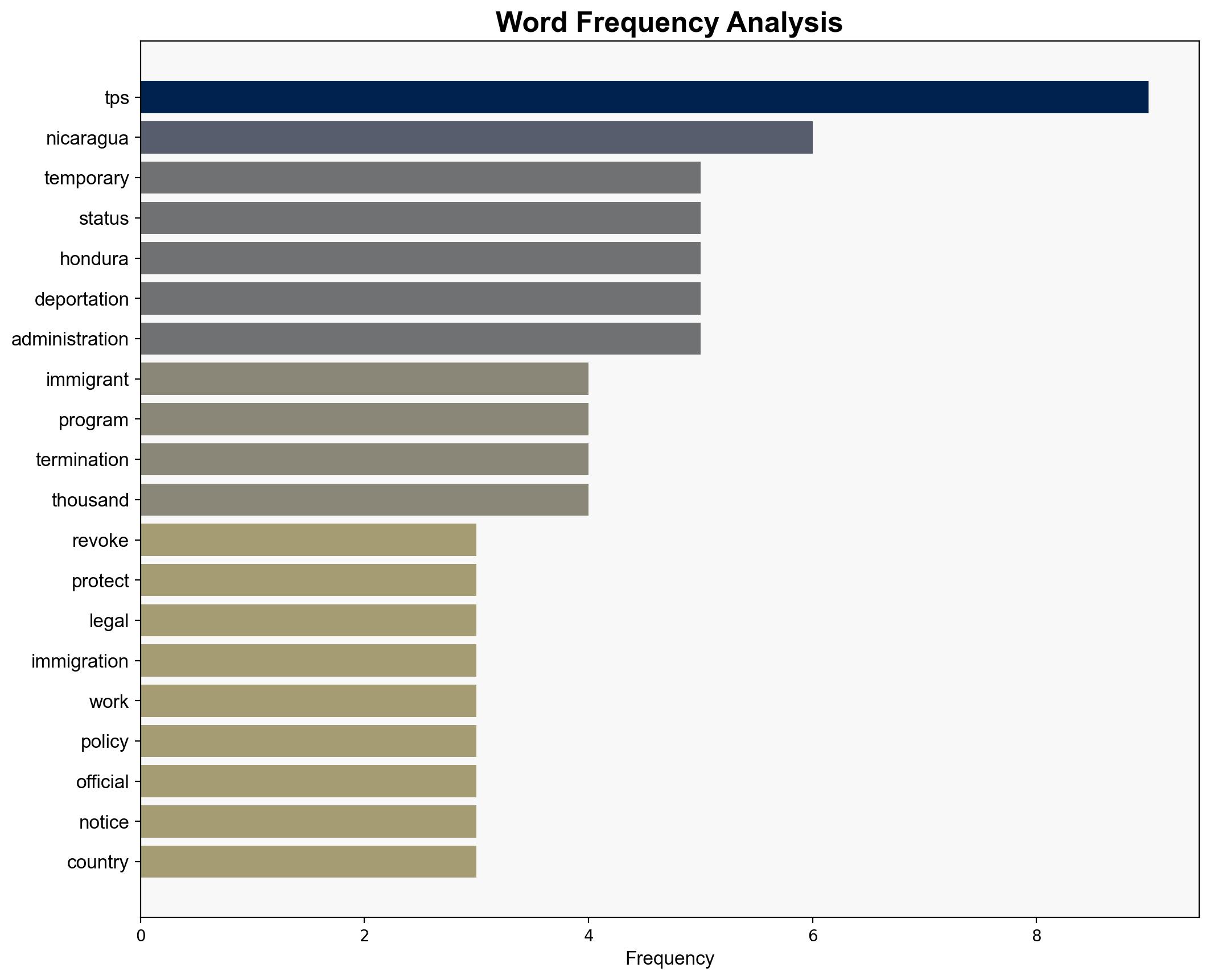US to revoke protected status for immigrants from Honduras and Nicaragua – CBS News
Published on: 2025-07-07
Intelligence Report: US to Revoke Protected Status for Immigrants from Honduras and Nicaragua
1. BLUF (Bottom Line Up Front)
The U.S. Department of Homeland Security plans to terminate the Temporary Protected Status (TPS) for immigrants from Honduras and Nicaragua. This decision could lead to the deportation of thousands, impacting regional stability and U.S. domestic policy. Immediate strategic considerations include potential legal challenges, humanitarian implications, and shifts in immigration enforcement priorities.
2. Detailed Analysis
The following structured analytic techniques have been applied to ensure methodological consistency:
Causal Layered Analysis (CLA)
– **Surface Events**: The announcement to revoke TPS status.
– **Systemic Structures**: U.S. immigration policy frameworks and international agreements.
– **Worldviews**: Differing perspectives on immigration, national security, and humanitarian obligations.
– **Myths**: The narrative of immigration as a threat versus a humanitarian responsibility.
Cross-Impact Simulation
– Potential increase in regional instability in Central America due to mass deportations.
– Economic impacts on U.S. industries reliant on immigrant labor.
– Strain on U.S.-Central America diplomatic relations.
Scenario Generation
– **Best Case**: Legal interventions delay deportations, allowing for policy reevaluation.
– **Worst Case**: Immediate deportations lead to humanitarian crises and regional instability.
– **Most Likely**: Gradual implementation with ongoing legal and political challenges.
3. Implications and Strategic Risks
– **Political**: Potential backlash from immigrant advocacy groups and political opponents.
– **Economic**: Disruption in sectors dependent on immigrant labor.
– **Social**: Increased tensions within immigrant communities and potential protests.
– **Legal**: Anticipated legal challenges could delay or alter policy implementation.
4. Recommendations and Outlook
- Engage with Central American governments to address root causes of migration.
- Develop contingency plans for potential humanitarian aid requirements.
- Monitor legal proceedings and adjust policy implementation accordingly.
- Scenario-based projections indicate a need for flexible policy responses to manage evolving situations.
5. Key Individuals and Entities
– Kristi Noem
– Catherine Cortez Masto
6. Thematic Tags
immigration policy, humanitarian impact, regional stability, legal challenges





